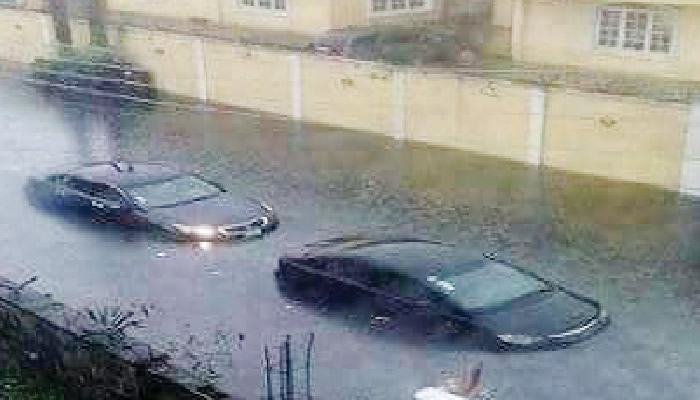The Lagos State Government has called on residents to remain calm after the state experienced over 12 hours of intense rainfall, which led to flash flooding in several areas. Authorities have assured that proactive measures are in place to manage the situation and minimize its impact.
Commissioner for the Environment and Water Resources, Mr. Tokunbo Wahab, issued a public advisory on Monday, noting that the Nigerian Meteorological Agency (NiMet) has forecasted continued heavy rains and thunderstorms over the next three days. He warned that temporary flash floods may occur in low-lying areas due to the overwhelming volume of rainwater exceeding the capacity of drainage systems.
Wahab explained that Lagos’ geographical position as a coastal city, coupled with the adverse effects of climate change, increases its vulnerability to flash flooding. He emphasized that rising water levels in the lagoon could trigger tidal locks, which obstruct the free flow of stormwater from drainage channels into the lagoon, leading to backflows and localized flooding.
Residents living near rivers, canals, and lagoon-adjacent communities have been urged to exercise caution, as these areas face a higher risk of fast-moving floodwaters.
Given that schools are currently on holiday, Wahab appealed to parents and guardians to monitor their children closely, warning them against playing in flooded areas or swimming in floodwaters, which pose significant safety hazards.
The Commissioner also reiterated previous warnings to motorists and pedestrians to avoid wading through flooded streets, as vehicles can become submerged and lives endangered by strong water currents.
Additionally, he condemned the irresponsible disposal of waste into drains during rainfall, reminding the public that clogged drainage channels exacerbate flooding. He stressed that the government is actively clearing and maintaining existing drainage systems while also constructing new concrete-lined drains to improve water flow management.
However, Wahab cautioned that when Lagos experiences extraordinary rainfall, as witnessed in the past 12 hours, collective responsibility from both the government and citizens is essential to mitigate the effects.




